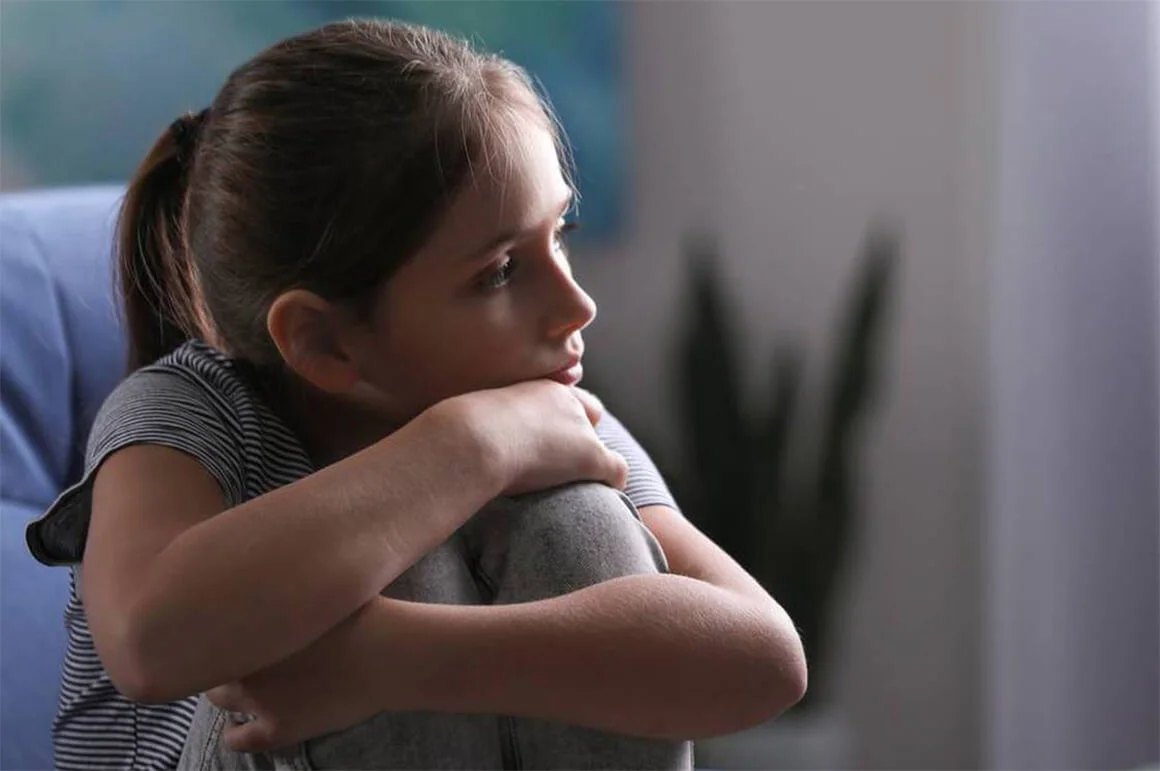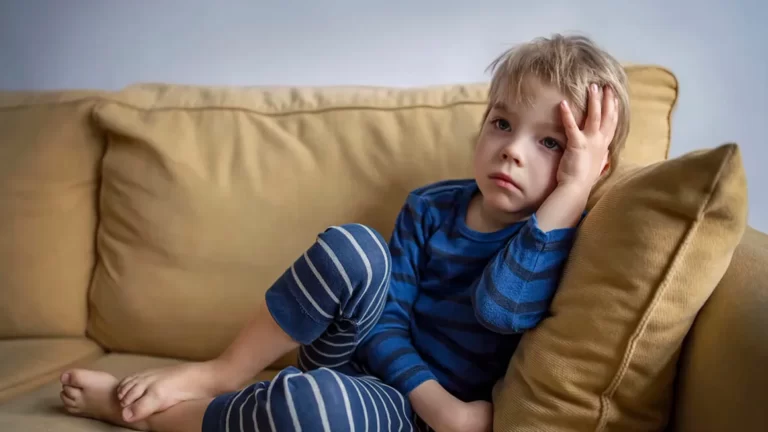Developmental crises in children are periods of intense psychological, emotional, and physiological growth, characterized by changes in behavior, self-perception, and perception of the world around them. These crises occur at specific ages and are associated with the transition from one developmental stage to another.
Childhood developmental crises are usually accompanied by increased anxiety, tension, and conflicts both within the child and between the child and their environment, including parents and peers. Developmental crises in children are an essential part of the growth and development process, as they reflect adaptation to new skills, abilities, and social situations.
It is important to note that each child experiences developmental crises individually, with varying degrees of intensity in their manifestations. Understanding the nature of developmental crises and the ability to recognize them helps parents and professionals provide support to children and teach them coping skills for overcoming challenges at each stage of development.

One-Year-Old Crisis
The one-year-old crisis is a period in a child’s life characterized by rapid development of physical and mental skills. During this time, infants begin to recognize themselves as separate individuals, often leading to conflicting emotions and behaviors. Parents may encounter communication challenges with their child, such as tantrums, protests, and fears.
It’s important to remember that the one-year-old crisis is a normal developmental stage, and its manifestations can vary for each child. To navigate this challenging period, parents should be patient and understanding, while supporting and encouraging their child’s drive for independence. Creating a safe and loving environment will help the child successfully overcome this developmental crisis and continue to grow.
Causes of the One-Year-Old Crisis
The causes of the one-year-old crisis are related to several key aspects of child development:
- Physical Development: During this period, infants rapidly acquire new motor skills, such as walking, crawling, and grasping objects. These new abilities lead to increased exploratory behavior and a desire to test boundaries.
- Development of Self-Awareness: The child begins to recognize themselves as a separate person, which triggers conflicting feelings and a desire to control their environment. This is manifested in disobedience, tantrums, and fears.
- Cognitive Development: At this stage, the child starts to better understand cause-and-effect relationships, enhancing their drive for independence and the desire to test parental boundaries.
- Social and Emotional Development: The child begins to form their first social connections and relationships with others. They may show attachment to certain people and a desire to interact, which can cause mixed feelings for both the child and their parents.
- Stress and Environmental Changes: One-year-old children may experience stress due to changes in their lives, such as transitioning to daycare or the arrival of a new family member. This stress often leads to heightened emotions and an increase in crisis manifestations.
Manifestations of the One-Year-Old Crisis
Manifestations of the one-year-old crisis can vary from child to child, but common signs include:
- Disobedience: The child may show stubbornness, ignore parental requests, and insist on their own way. This is related to the development of self-awareness and the desire to control their environment.
- Tantrums and Hysterics: The child may become more emotional, crying and throwing tantrums without apparent reason. This is often due to the lack of ability to express their feelings and desires in words.
- Protest Behavior: The child may refuse to eat, sleep, or get dressed. This is their way of testing parental boundaries and striving for independence.
- Fears and Anxieties: The child may become more sensitive to new situations, people, or objects and show fears that were not previously present. This is related to cognitive development and a better understanding of the world around them.
- Attachment: The child may become more attached to parents or caregivers, showing a desire to be with them constantly. This is connected to the formation of social bonds and emotional development.
- Jealousy: The child may show jealousy towards other children or family members, especially if a new baby has arrived. This is related to the formation of social relationships and the fear of losing parental attention.
- Resistance to Change: A one-year-old may struggle with changes in their life, such as transitioning to daycare or moving to a new home. This is related to cognitive development and the need for stability and security.
Understanding these manifestations of the one-year-old crisis will help parents support their child during this challenging developmental period. Patience, empathy, and positive communication with the child will foster trust and create a supportive atmosphere for the child’s growth and development. Parents should remember that developmental crises are temporary but important stages on the path to their child’s independence and maturity.
Advice for Parents
Here are some tips for parents to help cope with the one-year-old crisis:
- Be Patient: Try to remain calm and patient despite the difficulties of this period. Remember that the one-year-old crisis is a normal developmental stage that will eventually pass.
- Provide Routine and Stability: A structured day and proper routine will help the child feel secure and in control of their environment. Scheduled sleep, meals, and activities reduce anxiety and stress.
- Support Skill Development: Encourage the child in mastering new skills and provide opportunities for independent actions. This helps the child develop confidence and a drive for independence.
- Respond to the Child’s Needs: Listen to the child’s desires and needs. Pay attention to their feelings and emotions, even if they manifest as tantrums and hysterics.
- Provide Emotional Support: It’s important for the child to know that their parents love and support them. Hug, kiss, and comfort the child when they are stressed or anxious.
- Support Social Development: Arrange meetings with other children and families to help the child develop social skills and learn to interact with others.
- Set Boundaries and Consistency: Establish clear boundaries and rules of behavior, but do so kindly and consistently. This helps the child understand what is expected of them and feel safe.
- Rest and Sleep: Ensure the child gets enough rest and sleep, as lack of sleep can exacerbate crisis manifestations.
- Develop Communication: Read books, talk, and listen to music together with the child. This will help develop their communication skills and strengthen your bond. Spend time talking with the child, ask questions, and show interest in their experiences and thoughts. Learning new words and concepts will aid in the child’s speech and thinking development.
- Be Flexible: Be ready to adapt and adjust to the child’s development. If something doesn’t work, don’t be afraid to try alternative approaches and solutions.
- Use Positive Parenting: Focus on encouragement and praise when the child exhibits desired behavior, rather than punishment for undesired behavior. This builds trust and helps the child better understand their boundaries.
- Seek Support: If you’re struggling to cope with the one-year-old crisis, don’t hesitate to seek help from friends, family, or a psychologist. Sometimes simply sharing your concerns and receiving additional support can greatly ease the situation.

Three-Year-Old Crisis
The three-year-old crisis is a period in a child’s life marked by significant developmental changes. This crisis is associated with growing independence and the formation of the child’s personality, often leading to increased stubbornness, disobedience, and emotional outbursts. The child begins to realize their individuality and seeks self-assertion, which causes conflicts and contradictions with their environment, especially with their parents.
During the three-year-old crisis, children actively develop their communication skills, learning to express their feelings and thoughts with words. At the same time, they begin to interact more consciously with others and build social connections. However, their inability to effectively manage emotions and desire to control their environment can lead to behavioral problems and tension in relationships with parents.
Causes of the Three-Year-Old Crisis
The causes of the three-year-old crisis are related to several factors that influence the child’s development and behavior:
- Personality Formation: At this age, the child begins to recognize their individuality and strives for self-assertion. This can lead to stubbornness and disobedience as the child tries to define the boundaries of their autonomy.
- Development of Communication Skills: As the child masters speech, they learn to express their feelings, desires, and thoughts with words. However, the inability to fully and accurately express emotions often leads to frustration and tantrums.
- Social Development: The child begins to actively interact with their environment, build social connections, and establish hierarchies. This provokes conflicts and jealousy, especially if the child does not receive the desired attention or control.
- Cognitive Development: The child’s knowledge of the world around them significantly increases, which can cause anxiety and fear of new situations or objects. This leads to heightened sensitivity and emotional outbursts.
All these factors combined contribute to the complexity of the three-year-old crisis and cause various behavioral and emotional manifestations in the child.
Manifestations of the Three-Year-Old Crisis
Manifestations of the three-year-old crisis can be diverse but typically include the following characteristics:
- Stubbornness and Disobedience: The child may show stubbornness, refusing to follow requests or rules. Disobedience is often linked to the desire to test boundaries and define their autonomy.
- Egocentrism: The child may be focused only on their own desires and needs, ignoring the interests and feelings of others.
- Tantrums and Hysterics: The child may frequently cry or throw tantrums over minor reasons, especially if their desires are not met.
- Protest Behavior: The child may exhibit protest behavior to test the boundaries of parental control and protection. This is related to the child’s desire to find a balance between their independence and habitual dependence on parents.
- Jealousy: The child may feel jealous of other children or adults, especially if they feel they are losing parental attention and care.
- Fears and Anxieties: The child may exhibit fear of new situations, objects, or people as their cognitive development allows them to recognize potential dangers.
- Aggressive Behavior: The child may be aggressive toward other children or toys, especially when frustrated or unable to manage emotions.
- Sleep and Appetite: During the three-year-old crisis, the child may experience problems with sleep or appetite as emotional tension and developmental changes affect these aspects of their life.
Manifestations of the three-year-old crisis vary for each child. It’s important to consider the individual characteristics of the child to help them cope with this challenging period.
Advice for Parents
Tips for parents to successfully overcome the three-year-old crisis:
- Be Patient and Understanding: Be patient and understanding with your child. Try to understand the reasons behind their behavior and support them during this challenging period.
- Set Boundaries: Establish clear rules and boundaries so the child knows what they can and cannot do. Be consistent in your decisions and firm if the child tries to break established rules.
- Positive Parenting: Focus on encouraging and praising good behavior rather than punishing bad behavior. This helps the child develop self-esteem and build trust in you.
- Communicate: Maintain active communication with your child, share your feelings and thoughts, listen to their opinions, and try to understand their point of view.
- Teach Emotional Management: Help your child learn to manage their emotions, explain the difference between good and bad behavior, and discuss possible ways to cope with anger, sadness, or fear.
- Be a Role Model: The child often mimics their parents’ behavior, so strive to be a good example by showing patience, respect, and emotional stability.
- Involve the Child in Decision-Making: Allow the child to make some decisions independently to develop their sense of responsibility and independence.
- Provide Time for Independent Play: Let the child spend time alone, playing or engaging in favorite activities to develop their independence and creative thinking.
- Spend Quality Time Together: Engage in developmental games, read books, or participate in joint activities to strengthen your bond and make learning fun and interesting.
- Provide Support and Love: It’s important for the child to know they are loved even when they are disobedient or throwing tantrums. Provide continuous support, care, and love to help them cope with the challenges of the three-year-old crisis.
- Foster Social Skills: Help the child develop social skills by arranging playdates with other children and families. This helps the child learn to adapt to different social situations and establish friendships.
- Attend Developmental Activities: Enroll the child in developmental activities, such as creative or musical groups or sports sections, to help them develop their interests and skills.
- Avoid Comparisons: Each child develops at their own pace, and comparisons with other children can lower the child’s self-esteem. Instead, focus on their individual achievements and unique qualities.
- Seek Help When Needed: If you encounter particularly difficult problems or find it hard to manage the child’s behavior, seek help from friends, family, or professionals. Sometimes sharing your concerns and receiving additional support can significantly ease the situation.

Seven-Year-Old Crisis
The seven-year-old crisis is a period in a child’s life marked by significant changes in their physical, emotional, social, and cognitive development. This stage is also referred to as the “school crisis” because the child starts actively adapting to school, facing new rules, tasks, and social situations. During this period, children take on more responsibility and begin to understand their role in the group and society.
As they navigate the seven-year-old crisis, children may encounter various difficulties and challenges, such as communication problems with other children, conflicting feelings and doubts, as well as issues with self-esteem and motivation for learning. It is important for parents to support and help their child during this time by providing the necessary conditions for successful adaptation and development.
Causes of the Seven-Year-Old Crisis
The causes of the seven-year-old crisis are related to several factors that influence the child during this period:
- Physical Development: The child continues to grow and develop, undergoing physical and emotional changes. This often leads to clumsiness, fatigue, or decreased self-esteem.
- Cognitive Development: Children at this age experience significant improvements in thinking, memory, and attention, which can cause stress or anxiety due to new complex tasks and academic obligations.
- Adaptation to School: The child begins actively adapting to school life, which requires focusing on academic tasks, following rules, and socializing with teachers and classmates.
- Social Changes: The child starts to recognize their place in society, forming their social identity and establishing connections with others. This can lead to conflicts, jealousy, or a sense of inadequacy.
- Increased Responsibility: Independently completing homework, participating in school projects and activities, and meeting the higher expectations of adults put pressure on first-graders.
- Peer Influence: The child becomes more sensitive to the opinions and judgments of peers, which can affect their self-esteem, motivation, and social behavior.
All these factors combined create the conditions for the seven-year-old crisis, and it is important for parents to be prepared to support their child during this challenging period of their development.
Manifestations of the Seven-Year-Old Crisis
Manifestations of the seven-year-old crisis can be diverse and depend on the individual characteristics of the child. However, there are some common signs indicating the presence of this crisis:
- Unstable Mood: The child may exhibit sudden mood swings, becoming sensitive or irritable without apparent reasons.
- Communication Problems: Difficulties may arise in communicating with other children, teachers, or parents, manifesting as shyness, aggression, or withdrawal.
- Decreased Motivation for Learning: The child may lose interest in studying, struggle with completing homework, or fall behind in academic performance.
- Contradictory Behavior: The child may show disobedience, stubbornness, or tantrums, especially regarding adults and established rules.
- Self-Esteem Issues: Seven-year-olds often suffer from decreased self-esteem, feeling inadequate or insecure about their abilities.
- Dependency on Peer Opinions: The child may be overly concerned with the opinions of their peers, leading to conformity, rivalry, or, conversely, isolation.
- Search for Independence: During this period, children actively seek independence and autonomy, which can cause conflicts with parents or teachers.
These manifestations of the seven-year-old crisis are temporary, and with the right support from parents and other adults, the child will be able to navigate through them calmly.
Advice for Parents
Tips for parents to overcome the seven-year-old crisis and support their child during this period:
- Be Patient and Understanding: Try to be patient and understanding parents, considering that your child is going through a complex developmental stage.
- Set Boundaries and Consistently Enforce Them: Establish clear rules and boundaries of behavior while avoiding overly strict control or punishment.
- Provide Emotional Support: Help the child cope with their emotions, share their joys and sorrows, and support their interests and aspirations.
- Encourage Learning Motivation: Promote the child’s interest in studying, discuss their successes and problems, and help them improve their knowledge and skills.
- Develop Social Skills: Help the child build friendships with classmates and develop communication and emotional skills.
- Teach Responsibility: Involve the first-grader in household chores, family planning, and decision-making.
- Encourage Independence: Allow the child to make decisions independently and choose activities. Give them space for self-expression and self-development.
- Be Role Models: Demonstrate honesty, kindness, patience, and determination, so the child can develop these qualities in themselves.
- Participate in Joint Activities: Spend time with the child, engaging in games or creative projects to strengthen your relationship and have fun together.
- Seek Help: If you encounter particularly difficult problems or find it hard to manage the child’s behavior, do not hesitate to seek help from professionals or other parents who can provide useful advice and recommendations.

Adolescent Crisis (Ages 11-12 and Older)
The adolescent crisis is a period in a child’s life when significant changes occur at the physical, emotional, social, and cognitive levels. It usually begins around the ages of 11-12 and continues into late adolescence. During this time, young people start to form their identity, search for their place in society, and experience new feelings and emotions. The adolescent crisis is associated with the process of self-determination and adaptation to the changes occurring in their lives.
Manifestations of the adolescent crisis can include increased emotionality, mood swings, behavioral problems, conflicts with parents and peers, and issues with self-esteem and motivation. It is important for parents and caregivers to support adolescents during this challenging period, helping them cope with the challenges and develop positive skills and qualities.
Causes of the Adolescent Crisis
The causes of the adolescent crisis are related to several factors that influence the child during this period:
- Physical Development: Adolescents go through puberty, during which their bodies undergo significant changes, causing hormonal fluctuations and growth spurts. This can lead to insecurity, stress, or anxiety.
- Cognitive Development: Adolescents develop more complex thinking processes, begin to think about the future, and form their system of values and beliefs.
- Emotional Development: This period involves intense emotional development. Adolescents become more sensitive and receptive to others’ opinions, which can lead to emotional ups and downs.
- Social Changes: Adolescents actively build their social network, seek their peer group, establish new relationships, and compare themselves to others.
- Search for Independence and Identity: Adolescents strive to find their individuality and independence, often provoking conflicts with others, especially parents.
- Increased Responsibility: During this period, adolescents face new tasks, academic obligations, social demands, and expectations from others.
- Influence of Peers and Media: Adolescents become more susceptible to peer and media influences, affecting their behavior, values, and self-perception.
All these factors combined create the conditions for the adolescent crisis. It is important for parents to understand these causes and be ready to support their children during this challenging period of their lives.
Manifestations of the Adolescent Crisis
Manifestations of the adolescent crisis can vary, but here are some common signs:
- Emotional Instability: Adolescents may experience rapid mood swings, irritability, and frequent changes in mood.
- Conflicts with Parents and Peers: This period often involves conflicts with others, especially parents, due to the desire for independence and autonomy.
- Self-Esteem Issues: Adolescents often feel insecure or inadequate, affecting their communication, academic performance, and social relationships.
- Withdrawal from Family: Adolescents may become more withdrawn, preferring to spend time alone or with friends rather than with family.
- Experimentation: Adolescents often begin to experiment with different behaviors, including alcohol, drugs, or sexual relationships.
- Dependency on Peer Opinions: Adolescents may be overly concerned with the opinions and judgments of their peers, leading to conformity, rivalry, or social isolation.
- Academic Problems: Many adolescents face issues with academic motivation, concentration, or academic performance during this period.
- Rebellion and Disobedience: Adolescents may exhibit rebelliousness and disobedience, ignoring rules and authorities to express their individuality and independence.
- Risky Behavior: Adolescents are more prone to risky behavior, including aggression, recklessness, and getting into trouble.
These psychological characteristics of adolescence are temporary, but it is important to remember that each adolescent is unique, and the manifestations of the crisis may vary from one child to another.
Parents need to be patient, attentive to their children’s needs and emotions, provide support and understanding, help develop skills and strategies for coping with stress, and establish certain boundaries and rules.
Advice for Parents of Adolescents
Here are some tips for parents to support their children during the adolescent crisis:
- Be Patient and Understanding: Try to be patient and understanding with your adolescent’s emotions and moods, even if they seem inconsistent or unreasonable.
- Set Boundaries: It is important to establish clear boundaries and rules of behavior that the adolescent will follow. This helps them feel secure and organized.
- Maintain Open Communication: Communicate openly with your adolescent. Allow them to express their feelings and thoughts without fear of judgment or criticism.
- Show Interest in Their Life: Be interested in your adolescent’s life, friends, hobbies, successes, and problems. This helps strengthen your bond and show support.
- Be a Good Role Model: Demonstrate the values, behavior, and treatment of others that you want your adolescent to adopt.
- Support Academic Efforts: Provide your adolescent with the necessary resources and support for their studies and help them find motivation for academic success.
- Help Manage Stress: Teach your adolescent useful skills and strategies for managing stress, such as relaxation techniques and planning daily tasks.
- Consider Their Opinions: Involve adolescents in decision-making about their future, considering their opinions and preferences.
- Stay Involved: Do not distance yourself from your adolescents, even if they want to spend more time alone or with friends. Try to maintain a balance between granting independence and participating in their lives, so they know you are always ready to support and help them.

The Importance of Overcoming Developmental Crises for the Development of the Child and Family
During each developmental crisis, a child goes through new stages of growth, acquires new skills, and learns to cope with various problems and challenges. Successfully overcoming these crises contributes to the healthy development of the child and the strengthening of family bonds. Here are several key aspects that highlight the importance of overcoming developmental crises:
- Emotional Development: During developmental crises, a child learns to manage their emotions, express their feelings, and cope with negative emotions. This contributes to the formation of emotional resilience and the development of emotional intelligence.
- Social Development: Overcoming developmental crises helps a child learn to communicate with others, establish and maintain friendships, and develop interaction skills in various social situations.
- Cognitive Development: Developmental crises are associated with the development of thinking, perception, memory, and attention. Successfully overcoming them contributes to the development of the child’s intellectual abilities and learning capacity.
- Physical Development: Overcoming developmental crises is also important for the physical development of the child, as different periods of growth and development sometimes bring various physiological challenges.
- Personality Formation: During developmental crises, a child forms their personality, defines their values, beliefs, interests, and preferences. Successfully overcoming these crises contributes to the formation of a healthy, confident, and independent personality.
- Strengthening Family Bonds: When parents actively participate in the process of overcoming their child’s developmental crises and support them at each stage of development, it helps to strengthen family bonds and create an atmosphere of mutual understanding, love, and support within the family.

Collaboration with Teachers and Psychologists
Collaboration with teachers and psychologists plays a crucial role in successfully overcoming children’s developmental crises. The interaction between parents, teachers, and psychologists allows for a coordinated and effective approach to education and upbringing, which promotes the child’s well-being. Here are some key points of such collaboration:
Information Sharing: Parents should share important information about their child with teachers and psychologists, such as developmental characteristics, interests, challenges, progress, and achievements. In turn, teachers and psychologists should inform parents about the situation at school and the child’s learning and development outcomes.
Mutual Support: Parents, teachers, and psychologists should support each other in their efforts to educate and raise the child. This can include joint decision-making, providing resources and services, discussing difficult situations, and developing strategies to overcome them.
Joint Planning: Collaboration in planning educational and developmental activities, individual development plans, and support for the child, as well as jointly setting goals and expectations for their development and success.
Training and Consultation: Parents can receive consultations from teachers and psychologists on issues related to education, upbringing, overcoming developmental crises, and various developmental challenges of the child.
Monitoring and Evaluation: Collaboration in monitoring and evaluating the child’s progress, including their achievements, challenges, needs, and developmental changes. This allows for timely support and adjustment of approaches to education and upbringing.
Engaging Specialists: If necessary, parents, teachers, and psychologists can involve additional specialists to provide assistance to the child, such as speech therapists, special education teachers, doctors, and other experts.
Overall, collaboration between parents, teachers, and psychologists is a key element in successfully overcoming developmental crises and ensuring the healthy development of the child. By working together, all participants in the process can create a supportive environment for the child’s growth and development, helping them cope with the difficulties and challenges associated with different life stages.




